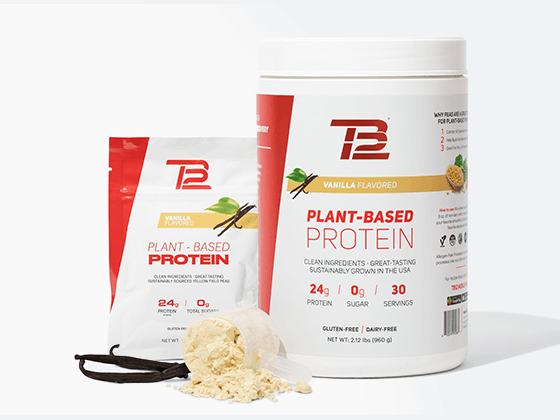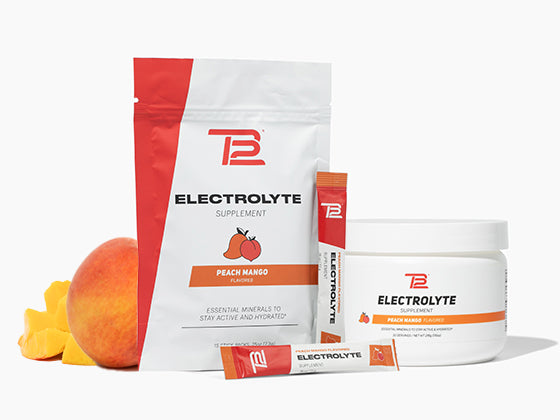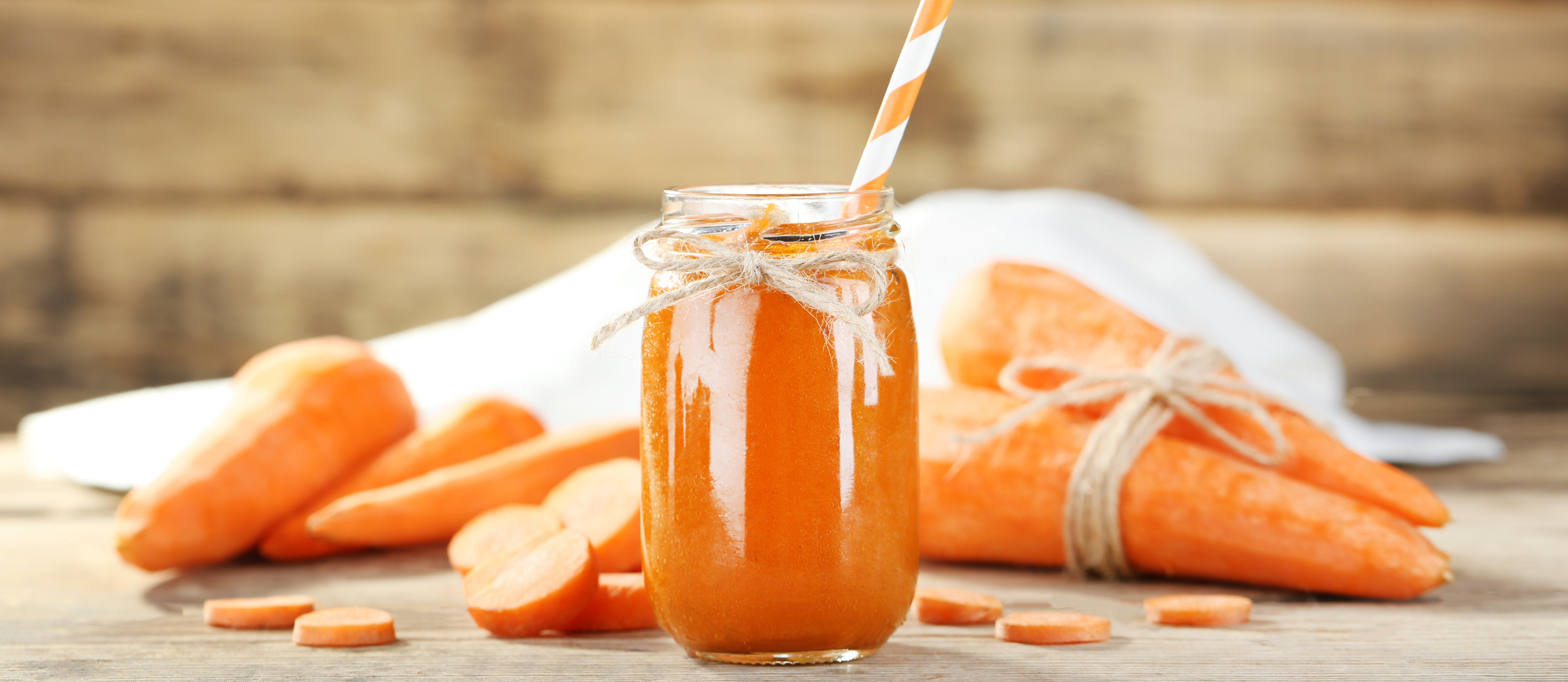It’s a simple but obvious fact: What you put in your body is ultimately what fuels it. That’s why it’s important to fuel your body with good, healthy foods that reduce inflammation — especially for endurance athletes like runners.
When you’re recovering from a long run, your body’s natural inflammation process helps it repair itself. However, an excess amount of inflammation can attack healthy cells in your body and lead to arthritis and heart disease, and cause pain flare-ups associated with previous injuries, poor digestive health and high blood pressure.
At TB12, we generally advocate for a plant-based diet fueled by local, seasonal, and organic foods. Why? Because highly processed foods can contribute to excess gut inflammation. Avoiding those processed foods and focusing on healthy eats can help set you up for success on your runs.
Added Sugar
Added sugar is highly processed and easily absorbed by our bodies. When we consume it too much or too frequently, it can lead to elevated C-Reactive Protein, cytokines, and free radicals –all markers of inflammation.
However, added sugar can be tough to spot. There are over 65 different names for added sugar. You’re probably familiar with names like cane sugar and high fructose corn syrup. But you might not know of others like turbinado, maltodextrin, and dextran. Thankfully, with new nutrition facts labels rolling out this year, you can now simply look for the “added sugar” section on the label.
The American Heart Association recommends no more than 6 teaspoons (25 grams) daily for women and 9 teaspoons (38 grams) for men. As a substitute for sugar, try honey or maple syrup. They contain healthful vitamins, minerals, and additional healthy properties.
Alcohol
Alcohol is one of the worst inflammatory offenders out there. Chronic alcohol consumption increases gut permeability, allowing gut bacteria to pass into your bloodstream, which increases inflammatory markers. This can lead to arthritis or damage to your internal organs.
To avoid inflammation, always aim for as close to zero alcohol as you can. If that’s not possible, count how many drinks you have over the course of a day and week. Then, make a goal to drink 1-2 drinks less than your normal amount.
Refined Carbohydrates
Refined carbohydrates are found in highly processed foods. They typically contain minimal fiber and therefore, like added sugar, are easily digested and absorbed. This results in the same inflammatory response as added sugars, and may lead to the same types of chronic diseases. Plus, existing research shows that refined carbohydrates can increase the number of bad bacteria in your gut.
So, how do you pick the right food for your carbo-load? Choose real, whole foods. Minimize foods in boxes and bags, like white bread, chips, crackers, and most breakfast cereals. Then, swap them out with foods containing whole grains and fiber.
Processed Meats
When processed meats like bacon, deli meats, and hot dogs are cooked, they form AGEs, or advanced glycation end products. On top of causing inflammation, AGEs are carcinogenic, meaning they promote the growth of cancer, and are associated with heart disease.
Our solution is to aim for a more plant-based diet. Cutting meat out can help reduce inflammation and increase your lifespan.
Fried Foods
Much like processed meats, fried foods are another AGE offender, since the high heat of frying fat and protein creates AGE’s. On top of that, plenty of fried products are battered in white flour – a processed carbohydrate – making them a double whammy of inflammation.
Nix the fries, onion rings, fried dough, or generally anything battered and fried if you want to slash your inflammation.
What to Try Instead
Now that we’ve covered what not to eat, consider making some changes to your diet to make the most of anti-inflammatory foods. We recommend a menu of whole rye, beans, and brassica vegetables to get you started. Once you’re eating right, be sure to incorporate anti-inflammatory pliability moves before and after your workout.
At the end of the day, most foods are fine in moderation. While you should try to limit inflammatory foods as much as possible, don’t feel guilty about cracking open a can of your favorite soda as a post-run treat.
To learn more about preparing for long-distance and endurance running, check out our Marathon Training Guide.





